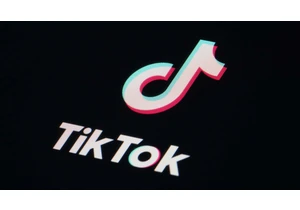Welcome to AI Decoded, Fast Company’s weekly newsletter that breaks down the most important news in the world of AI. You can sign up to receive this newsletter every week here.
AI hasn’t taken over CES, but it’s making a showing
Consumer electronics companies have only begun to put AI brains into products like TVs, refrigerators, and a thousand other devices on display at the Consumer Electronics Showcase in Las Vegas this week. It’s still a bit early: Researchers are only now developing AI models small enough to run inside consumer devices, and chips cheap and efficient enough to run them. And yet, a few notable AI-infused products have been generating buzz.
Nvidia’s new so-called personal AI supercomputer, Project Digits, made the biggest splash. The compact desktop is powered by a powerful Nvidia GB10 Grace Blackwell Superchip and can run the entire stack of Nvidia’s software, from chip management to AI models and tools. It’s an “AI workstation” meant for AI researchers and developers, who will use it to prototype and fine-tune models. The machine will be built by Nvidia PC-maker partners, which suggests the tech giant is eying the consumer PC space. “This is a good start, as they may be showing the first real-true AI PC,” says Creative Strategies CEO and principal analyst Ben Bajarin. “Also, the chip is a clear foreshadowing to their highly rumored PC market [CPU].”
Meanwhile, a Danish company called Nuwa is showing off its Nuwa Pen, which writes like a normal ink pen but features three sensors near the point to record the writing. The captured handwritten text then syncs to a dedicated app in the user’s smartphone. The app uses AI to transcribe the written text and can also perform AI functions on the text, such as translation and summarization.The app integrates with a number of productivity apps, such as Google Docs and Evernote. The pen costs $295, requires a subscription, and will ship this quarter. Nuwa Pen could prove useful for those who ideate better with pen and paper because now those ideas can be captured in digital format.
Halliday also wowed consumers with their new smart glasses, which cast digital content toward the wearer’s eye via a small display mounted within the top of the frames. To the user, it’s like seeing a persistent 3.5-inch screen in the upper-right part of their field of view. The glasses, which connect to a phone via Bluetooth, can do real-time translation, voice-to-text transcription, and navigation. There’s an AI-powered assistant that Halliday says can provide helpful information to the user proactively. The user controls the glasses via voice commands or with a companion trackpad ring. The glasses will cost between $399 and $499, and Halliday expects to start shipping them during Q1 2025.
Withings, a longtime player in the connected health space, brought something special to CES this year: a body-scanning health mirror called Omnia. The device comprises a scale-like platform connected to a full-length mirror that displays all kinds of health information. It scans the user for heart, lungs, sleep, body, and metabolic composition data. It also contains an AI assistant that synthesizes the data into actionable advice. The mirror generated lots of interest on X this week but, alas, it’s just a “concept-product,” meant to showcase the various health metrics that Withings devices (watches, scales, etc.) can gather.
The real reason Mark Zuckerberg wants to make Facebook more like X
On Tuesday, Meta CEO Mark Zuckerburg said his company is going to get out of the business of “fact-checking” user posts and move toward a purer First Amendment approach to content management. Many assumed this was another instance of a tech magnate bending the knee to the incoming Trump administration. (The logic isn’t hard to follow: Trump once threatened to jail Zuckerberg over Meta’s alleged censoring of conservative viewpoints, so it would make sense for Zuckerberg to preemptively capitulate to the president-elect.)
But in reality, it’s more likely that Zuckerberg is using the current political climate as cover to do something he’s long wanted: to stop trying to police truthfulness and civility on his social platforms.
Facebook was rightly blamed for acting as a clearinghouse of disinformation and boomer partisan rage during both the 2016 and 2020 elections. The company came under intense pressure to stifle fake news stories and conspiracy theories on its platforms. Facebook responded, declaring a range of topics such as anti-vax and Holocaust denial off-limits. The MAGA crowd screamed that such controls amounted to censorship.
Now Zuckerberg says Meta went too far. And he’s using the shortcomings of Meta’s human and AI content moderation as a reason to pull back control. “The fact-checkers have just been too politically biased and have destroyed more trust than they’ve created,” he said.
The AI systems that do most of the moderation work are expensive to train and run, and they’ve been only partially successful. Toxic content and disinformation often come in the form of memes, which use a thoughtful mix of text and imagery to convey their message. The viewer often must think for a moment before “getting” it. This is hard for AI to do. Toxic or false messages can also be delivered through videos within posts (or ads), which can be hard to detect. It’s also true that the systems have tended to generate false positives, blocking content and penalizing users when no serious community-guideline violations have taken place.
Zuckerberg said this week that the company is going to “focus on reducing mistakes, simplifying our policies, and restoring free expression on our platforms.”
Meta will scale back its human and AI moderation and rely on user-generated “community notes” to label most false or toxic content, much like Elon Musk’s X does. The dark side of this, of course, is that Meta may once again begin profiting from rage bait content, which tends to trend bigger and faster than other content.
The World Economic forum sees major workforce shifts by 2030
The World Economic Forum (WEF) says it expects the global job market to add 78 million net new jobs by 2030 as demographics shift and businesses undergo a transformation to AI. The organization says in its Future of Jobs Report 2025 that 170 million new positions will emerge, but that 92 million existing jobs will be displaced, representing a 22% shift in current employment. The findings draw on data from more than 1,000 companies worldwide.
While technological skills in AI, big data, and cybersecurity will be sought after by employers, softer human skills, including creative thinking and adaptability, will remain important, the report says. The number of jobs in renewable energy and environmental engineering sectors show strong growth potential. Surprisingly, frontline workers such as farm workers, delivery drivers, and construction workers will see large job opportunity expansion, as will workers in the healthcare and education sectors.
Traditional, lower-skilled roles (think cashiers, administrative assistants) will likely decline. Skills such as graphic design that are directly challenged by generative AI will likely see less demand in the marketplace. The WEF estimates that 40% of all workplace skills will need to be updated by 2030 as AI influences the nature of work; 63% of employers currently cite skills gaps as their primary obstacle to adapting to AI and benefiting from it.
“Generative AI and rapid technological shifts are creating both unprecedented opportunities and profound risks,” said Till Leopold, who heads up work, wages, and job creation at WEF.
More AI coverage from Fast Company:
- This 22-year-old made an app to help farmers predict risks to their crops
- Sam Altman offers clues about where OpenAI is headed
- This startup says its AI can speed insurance approval of health treatments
- Trump unveils $20 billion investment in American data centers
Want exclusive reporting and trend analysis on technology, business innovation, future of work, and design? Sign up for Fast Company Premium.
Autentifică-te pentru a adăuga comentarii
Alte posturi din acest grup


Rumors of a Tumblr comeback have been bubbling for a couple of years—think a pair of Doc Martens here, a splash of pastel hair dye there. Now, Gen Z is embracing the platform as a refuge from an i

You can’t talk about the manosphere without mentioning Andrew Tate. The British-American influencer and former professional kickboxer built his platform by promoting misogynistic ideas—claiming wo

UFC is joining up with Facebook’s parent company


As the deadline to strike a deal over TikTok approaches this week, President Donald Trump has signaled that he is confident his administrat

